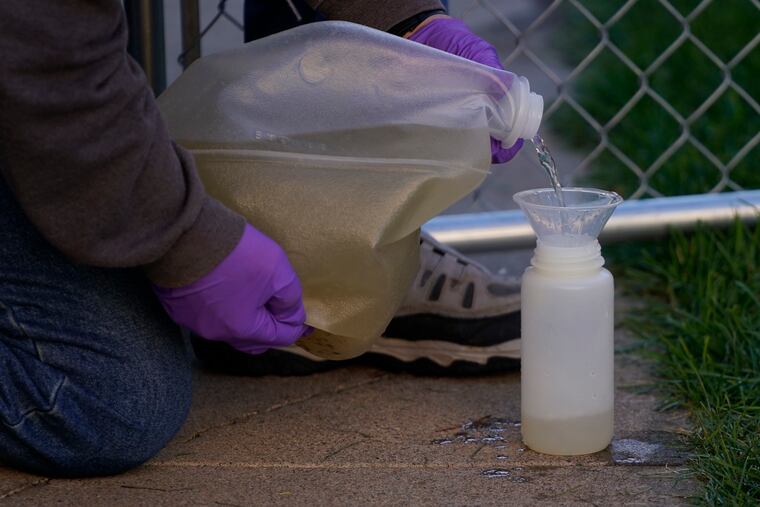Philly to join national effort to test sewage for polio
Philadelphia health officials believe polio is likely present in the city. A new federal program will help the city confirm that.

Philadelphia is slated to be among the first participants in a federal initiative to use sewage to identify polio in the city.
The Philadelphia Department of Public Health confirmed Wednesday it, along with the Michigan Department of Health and Senior Services, will be the first to provide samples to a CDC laboratory testing for polio as part of a four-month initiative.
The city is involved because of connections between Philadelphia residents and communities in New York, where cases of polio emerged this year, said city Health Commissioner Cheryl Bettigole. She has said it is likely polio is circulating in Philadelphia, though no cases have been reported.
» READ MORE: Polio is likely circulating in Philadelphia. Here’s what you need to know.
If polio is identified in the city’s sewage, Bettigole said, she is hopeful that might serve as an alarm for parents who didn’t vaccinate their children with the belief that the risk of exposure to the virus was low.
“If we were to find a positive in our surveillance sampling,” Bettigole said in a statement, “that might convince some... to agree to vaccinate their children.”
The CDC testing program is designed to identify parts of the country where polio is present and there is a significant unvaccinated population, with the goal of then boosting vaccination rates.
“The complete recommended polio vaccination series is extremely effective in preventing paralytic polio, and the vaccine protects against severe disease in almost everyone who has received the recommended doses,” according to a CDC news release Wednesday. “Access to clean drinking water, modern sewage systems, and wastewater management further help prevent viruses like poliovirus from spreading.”
There is not yet a date when testing for polio in Philadelphia will start, the city health department reported, but if the virus is detected citywide testing can be narrowed to pinpoint more precisely where polio is present.
About 90% of Philadelphia children under 5 have received the required four doses of polio vaccine. Bettigole did not specify what parts of the city were undervaccinated, but the health department has said there are pockets in South Philadelphia where less than 60% of children have been vaccinated.
Nationwide, about 92% of Americans are vaccinated against polio, the CDC reported.
A case of paralytic polio in Rockland, N.Y., this year highlighted the risk the virus can still pose to people who haven’t been vaccinated. At its peak in the 1950s, the virus, which is most frequently spread through oral contact with fecal material, killed thousands of children. One in 200 polio infections lead to irreversible paralysis. The New York infection likely came from someone from outside the United States who received the oral polio vaccine, which protects the recipient but can also cause the person to shed the weakened virus in their stool. It then can mutate into a dangerous form of the virus.
The United States stopped using oral vaccination in 2000 in favor of injected vaccines, which do not carry live virus.
Wastewater testing has become an increasingly valuable tool in tracking COVID-19, providing a warning system for an increase in cases days before public reporting of PCR and antigen tests spot them, and can be easily adapted to detect other pathogens. Philadelphia began operating a reliable wastewater testing program for COVID in May, and made the data public in October.
Staff writer Wendy Ruderman contributed to this article.